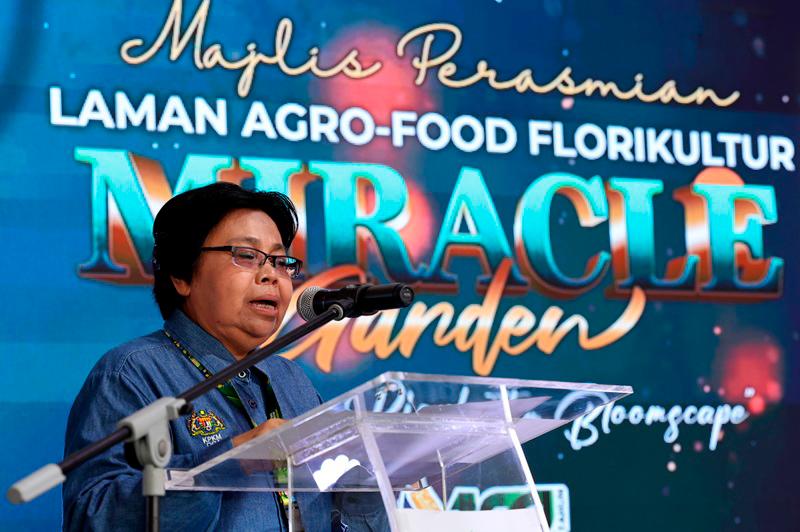SERDANG: The floriculture industry needs to be explored further as it offers a significant opportunity to enhance Malaysia’s trade balance and positively impact the national economy, according to director-general of Agriculture Datuk Nor Sam Alwi.
She said the industry has added RM2.68 billion to the country’s exports from 2018 to last year and Malaysia was ranked the world’s 10th largest exporter of floriculture and the leader among ASEAN countries with an export value of RM405.3 million last year.
“This sector plays a crucial role in our Gross Domestic Product (GDP).
“The Department of Agriculture has been tasked with emphasising the significance of the floriculture industry as a key contributor to a favourable trade balance within the agricultural sector,” she added.
Nor Sam said this when met at the opening ceremony of the Department of Agriculture’s Agro-food Floriculture ‘Miracle Garden’ site, a part of the Malaysian Agriculture, Horticulture and Agrotourism Exhibition (MAHA) 2024 here, today.
Nor Sam emphasised the need to further develop the floriculture industry to complement Malaysia’s agricultural sector. Flowers, with their diverse properties and uses, can enhance the productivity of other crops.
“For instance, certain flowers can act as natural pest repellents. Their scents can deter pests, reducing the need for chemical pesticides. In paddy fields, we recommend planting marigolds to help minimise pest-related issues,” she explained.
At today’s ceremony, the wife of Prime Minister Datuk Seri Dr Wan Azizah Wan Ismail, who is also the Member of Parliament for Bandar Tun Razak officiated the ‘Miracle Garden’ which is one of the main attractions among MAHA visitors this year.
The garden features 100 types of colourful fresh flowers, symbolising Malaysia’s rich cultural diversity and reflecting the aspirations of Malaysia MADANI for a harmonious nation.
Dr Wan Azizah also launched a book titled Pakej Teknologi Tanaman Ros, published by the Department of Agriculture. The book offers detailed guidance on rose cultivation, including botanical aspects, planting practices, disease management and harvesting, as well as potential downstream products and financial benefits.









